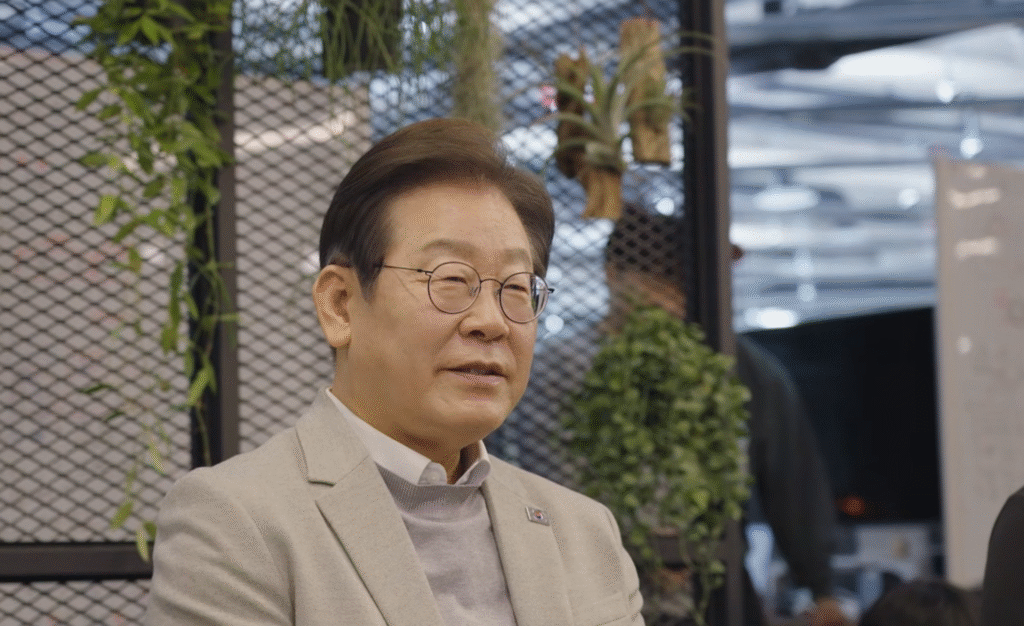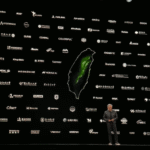
What once sounded like science fiction has become reality: artificial intelligence is transforming daily life and determining the fate of nations. Amid this technological revolution, Lee Jae-myung, former leader of South Korea’s Democratic Party, has unveiled an ambitious plan to secure his country’s place at the forefront of AI development.
On Monday, Mr. Lee, declaring his candidacy for the 21st presidential election, announced his vision to invest 100 trillion won (about $75 billion) in artificial intelligence industries, positioning South Korea as one of the world’s top three AI powers.
“AI is the game changer that will reshape the global economic landscape of our time,” Mr. Lee said during a visit to FuriosaAI, a domestic AI semiconductor fabless startup. He pledged that government funding would serve as a catalyst for private investment, increasing AI-related budgets beyond levels seen in advanced nations.
Since ChatGPT and similar technologies stunned the world, artificial intelligence has shifted from optional to essential in global competition. Mr. Lee emphasized that South Korea must transition from “a catching-up nation to a leading nation” — evoking the country’s historic decision decades ago to invest heavily in semiconductor technology.
Mr. Lee’s proposal is detailed and specific. He plans to substantively strengthen the Presidential National Artificial Intelligence Committee, secure at least 50,000 GPUs — critical hardware for AI development — and support the development of specialized neural processing units (NPUs).
“K-AI is essential for the K-Initiative,” he stated, using a somewhat formulaic expression that nonetheless conveys his message that South Korea must take the lead on the world stage. The investment, he argued, is not merely financial but crucial for the nation’s prosperity and survival.
“The success of AI ultimately depends on human capability,” Mr. Lee said, outlining plans to establish AI colleges at regional universities, expand military service exemptions for technical specialists, and attract international talent. His proposal to strengthen science, technology, engineering, and mathematics education through STEM programs represents an investment in future generations.
Perhaps most notable is his “AI for All” project, which promises to provide all citizens with free access to advanced AI tools comparable to those in developed countries. This democratization of technology, according to Mr. Lee, would generate massive data accumulation leading to industry convergence and new business creation.
The plan also encompasses global cooperation, proposing a global AI co-investment fund and expanded partnerships with Pacific, Indian, and Middle Eastern nations to create a digital population base of one billion users. The establishment of multinational data utilization infrastructure appears to be a strategic necessity rather than empty rhetoric.
Every vision, however, faces criticism. Kwon Sung-dong, floor leader of the ruling People Power Party, compared Mr. Lee’s plan to “setting a delicious and affordable table without rice,” suggesting the proposal lacks substance. Citing Mr. Lee’s past statements on nuclear energy policy, Mr. Kwon argued that “cutting-edge industries like AI semiconductors require stable and affordable power supplies as a prerequisite” — questioning the feasibility of the ambitious plan.
Ironically, this political debate demonstrates how central artificial intelligence has become as a national issue. Once confined to science fiction, AI now stands as a core presidential election topic. The debate over who can better envision the future will ultimately determine what future South Koreans choose.
Mr. Lee’s AI platform could mark a turning point in his political trajectory. Having been on the defensive amid various allegations including the Daejang-dong development scandal, his pivot to presenting a vision for future industries appears to be an attempt to reframe the narrative — a political strategy shifting from defense to offense, from past to future.
“I will create an ‘AI Basic Society’ that protects citizens’ lives through artificial intelligence,” Mr. Lee proclaimed.
Whether his vision will materialize or remain political rhetoric is uncertain. What is clear is that we all stand at a crossroads before the monumental changes that artificial intelligence represents. The significance lies not in the 100 trillion won figure, but in the commitment to the future it represents.
Time will tell whether his plan ends as merely an election promise or evolves into a national project that transforms South Korea’s future. For now, we have witnessed another possibility for South Korea’s future centered on artificial intelligence. Amid the flood of election promises, the question remains: what future will voters choose?




![[기고] 위험은 스타트업이, 열매는 공공이… 혁신의 주인공은 누구인가 3f3b00ac-efb7-456f-8bae-91cb3c75e27d](https://platum.kr/wp-content/uploads/2025/10/3f3b00ac-efb7-456f-8bae-91cb3c75e27d-1-150x150.jpg)


Leave a Comment